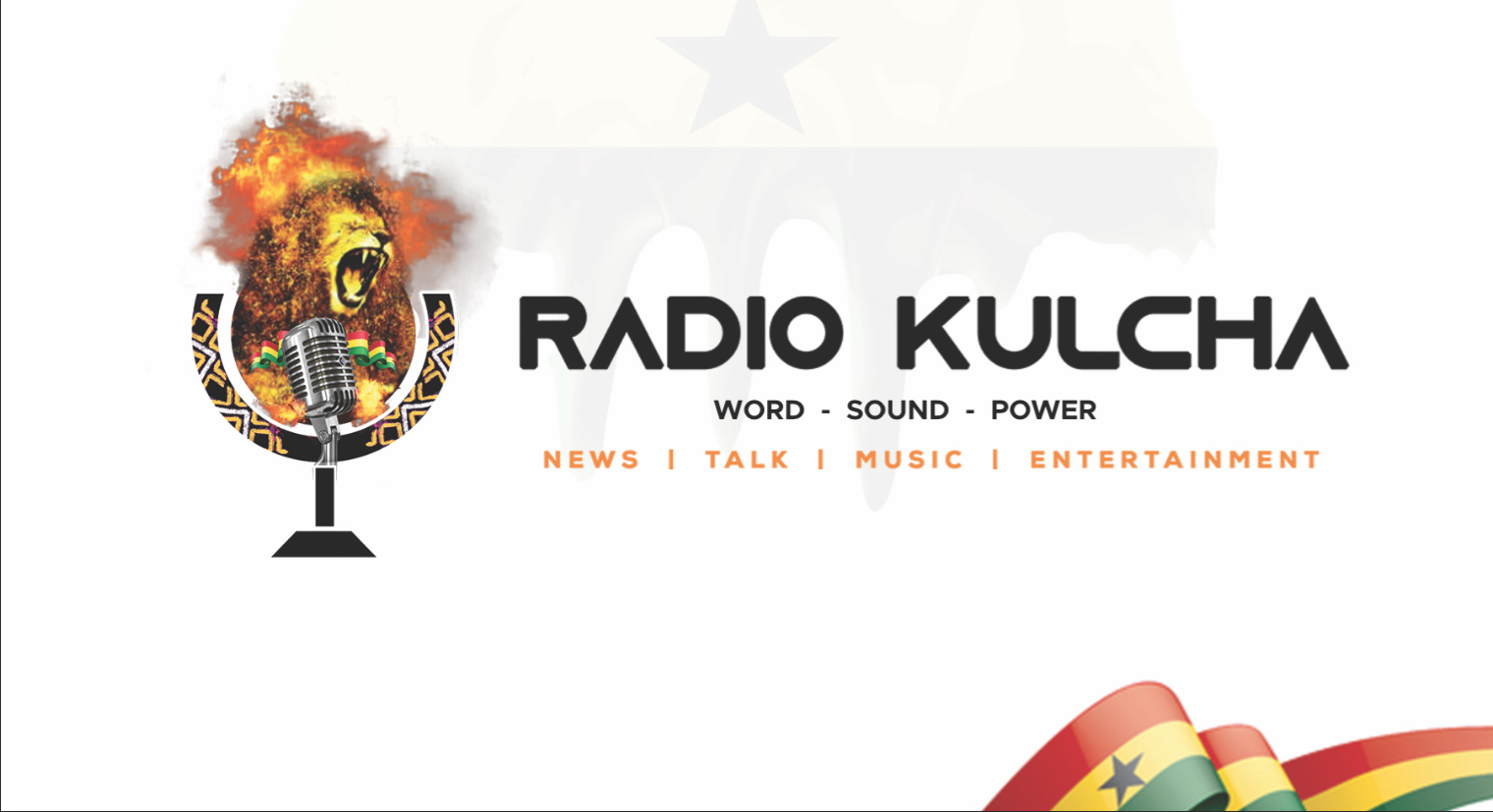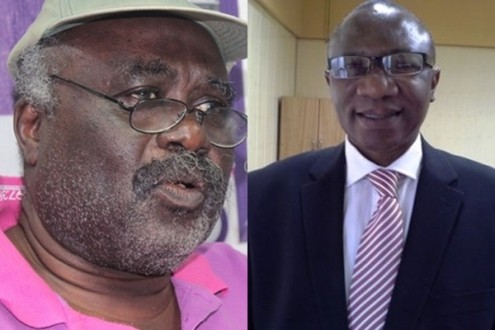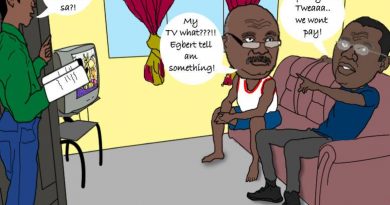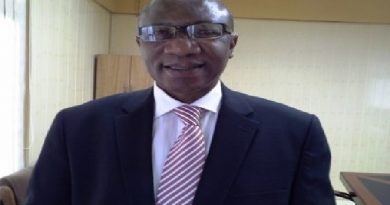Resurrection of TV License May Sound The Death Knell For Independent Broadcasting
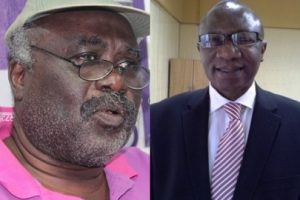
“Wereko-Brobby Kicked out” is how Peacefmonline reported it, courtesy of the Daily Guide. “Court dismisses Tarzan’s case against collection of TV license (sic)” was Myjoyonline’s initial take on the matter, although this was sobered up later upon the protestations of my Counsel. In later interviews with NEAT FM and HITZ FM, both presenters initially saw the Fast Track Court’s decision not to grant my interlocutory application to delay the collection of TV licence fees as a personal blow to me.
Later in the evening, I heard my niece Dzifa Bampoe chirpily declare that, as a law abiding citizen, she was going to pay her fee promptly. Kemini cheerfully gave us the modalities or paying which nephew George Wiafe wondered how much he would have to cough up on account of his ownership of several TV sets?
The above represents the typical manner in which most independent broadcasters reported.
The resurrection of the collection of TV licce fees by the GBC. To them, this was a triumph of established order over the ‘irritating’ habit of constant stirring the calm waters by Wereko-Brobby, aka Tarzan. If that were to be so I would have been better off paying up my licence fee instead of spending up to seven(7) licence fees pursuing the matter in court .
As far as I see it, the return of TV Licence fees poses a real and present danger to the pluralism and choice we have enjoyed for the past 21 years in Ghana. Indeed, if not checked, this could sound the death knell for private and independent broadcasting, leading to the loss of several thousand jobs, and more alarmingly the unforeseen return of state monopolised propaganda.
Just in case anyone is thinking I am being unduly alarmist, here is the deal. A friend who shares my concern about this frightening prospect shared his ‘back of the envelope’ calculation that at Ghc 36 per set, the GBC would raise annual revenue of about Ghc 115 million from the 3.2 million households based on the conservative estimate that each home and only 1 TV set. This amount could more than double to about Ghc 250 million a year hen you add revenue that would be raised from the thousands of TV sets in hotels, restaurants, drinking spots, etc. as well from the purchases of new TV sets. So here we are that in one fell swoop, we the people of Ghana are handing a major
competitive advantage to a broadcaster that most of us confess we do not watch. “But the announcement of the new fees only earned swift condemnation from a cross-section of the public.Most people believe that it is unnecessary to pay licence fees to the Ghana Broadcasting Corporation (GBC) when it operates as a private broadcaster and yet makes money from broadcasting TV commercials.” This is Myjoyonline’s report.
Unlike the venerable BBC, which is barred from raising revenue from commercials, and has to rely solely on licence fee revenues to run its operations, the GBC is not barred from making money from commercial activities. Indeed, the corporation’s law, which was enacted in 1968 specifically expects GBC to raise revenue from commercial activities. Whilst this may be understandable when GBC was the only broadcaster in Ghana in 1968, it is absolutely untenable in this 21st century where Ghana has more than 400 radio stations, over 30 free to air TV stations and a host of subscription services.
Dr. Kwame Despite and plain Kwasi Twum are the leading moguls on the Ghana broadcasting scene at the moment. Between the two of them and latterly my elder brother Dr. Kwabena Duffuor, they provide probably more than 60% of the content of Ghana’s media. They have the most popular programmes and presenters, both for current affairs and drama. They and other less dominating but still influential independent broadcasters have become our sources of reliable, balanced and informed news as well as most entertaining popular drama.
I don’t know how much Dr. Kwame Despite, Kwasi Twum and Dr Duffuor’s personal fortunes are. Unfortunately I did not get to scroll the 80 richest Ghanaians list. Never mind, the issue is that no matter their worth, I know they are hard headed business people, who will not cherish nor indeed want to invest heavily in a broadcasting industry where the least watched competitor is given an annual head start of GHC 250 million from licence fees, and also allowed to compete with them for the commercial revenue that they solely depend on for their operations.
I can say without equivocation that, if this situation is allowed to persist for long, the three gentlemen will almost certainly conclude that the media platform has been skewed in favour of the state broadcaster resulting in patently unfair competition. The sensible and obvious thing to do will be to abandon Ghana’s broadcasting industry and move on to other opportunities that they believe to be fairer. The result, the loss of thousands of jobs of presenters, producers, advertising executives, etc. from the JOY, PEACE, STARR franchises and many more less dominant players.
I would suggest that the foregoing scenario is not far-fetched at all. For if we resurrect a 49 year old law and begin collecting TV licence fees without dragging all other relevant laws into today’s reality of a plural media landscape, the unintended consequence will be a slow and premature death of independent media in Ghana.
It is important we do not put the cart before the horse here. First we need to review the 47 year old GBC Act and replace it with a new Broadcasting law which will deal with today’s reality, including defining what is considered public broadcasting today, should there a single platform for it, the BBC model, or should public broadcasting be part of the obligation of independent broadcasters too?; and last but not least, should we the public be asked to fund public broadcasting through licence fees, and if so how should this be done without damaging the principle of pluralism and choice?
There is an ongoing conversation on a new Broadcasting law which hopefully will address the above questions. I believe that it is in the enlightened interest of Ghana’s media practitioners to focus the narrative on discussing and finding credible and fair solutions to the above, rather than sounding the death knell on their own careers and future on being the cheer leader for the GBC collection of licence fees.
For the millions of Ghanaians who do not agree with paying the licence fees, the remedy is not to threaten ‘YENTUA’ for that would be unlawful even as most of us do not see any rhyme or reason to pay for something we do not derive any benefits from. The proper thing to do is to join in the campaign to abolish the antiquated laws of yesteryear and replace them with new laws that reflect today’s landscape. If you feel as strongly about the survival of independent broadcasting in Ghana, as I do, visit www.facebook.com/abolishtvlicencefee and sign the petition to our Government and Parliament.
Just for emphasis, it is not about Wereko-Brobby; I will gladly pay the fee just so that I can continue o watch the BBC and other subscription media. Rather, it is s about whether Ghanaians will continue to hear ‘Chairman Kwame Sefa, my niece Dzifa and her colleagues, my nephews Kaba. Bernard, Sky, and Abeeku Santana, and all those wonderful and gifted presenters who have come to represent all that is good, illuminating and vibrant in independent broadcasting in Ghana today.
By: Dr Charles Wereko-Brobby
